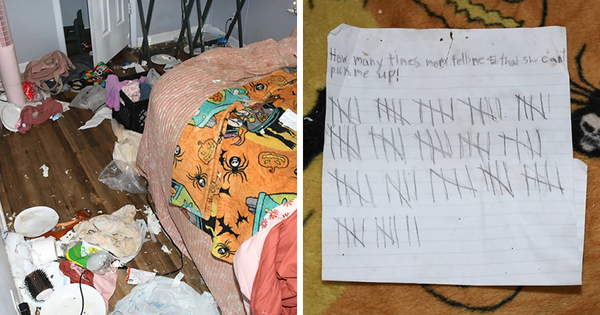
The idea of being evicted by your own child is a painful and often unthinkable scenario. For many parents, living with an adult child is a wonderful arrangement born from mutual support. However, when the relationship sours or circumstances change, the parent who was once the head of the household can find themselves in a legally precarious position. This article will explore seven specific situations where an adult child can legally evict a parent from a home, shedding light on the harsh realities of property law and family disputes.
1. The Child Is the Sole Owner of the Property
This is the most straightforward and common scenario. If your adult child bought the house and their name is the only one on the deed, they are the legal owner. As the owner, they have the right to control who lives on their property. Even if you have contributed to household expenses or believe you have a verbal agreement, without a written lease, you are likely considered a tenant-at-will. This means your adult child can legally evict you by providing proper written notice as required by state law.
2. You Violate a Formal Lease Agreement
If you have a written lease with your child, you have more protection, but you also have clear obligations. This lease agreement is a legally binding contract. If you violate its terms—for example, by failing to pay your agreed-upon portion of the rent, bringing in a pet against the rules, or causing significant damage to the property—your child has grounds for eviction. They would have to follow the same legal eviction process as any other landlord.
3. The Child Inherits the Home You Live In
This situation can be emotionally devastating. You may have lived in your home for decades, but if your spouse passed away and the will or trust left the property solely to your adult child, they become the new legal owner. Even if you have an emotional claim to the home, the legal ownership is clear. If the child decides they want to sell the property or live in it themselves, they have the right to terminate your tenancy, making it a time an adult child can legally evict you.
4. You Are a Danger to the Child or Others
Even without a formal lease, a property owner has the right to remove a person who poses a threat to the safety and well-being of others in the household. If a parent’s behavior becomes abusive, violent, or involves illegal activity like drug use on the premises, the child can take immediate legal action. This often involves obtaining a restraining order or an order of protection, which would legally exclude you from the home and serve as a form of eviction.
5. The Home Is Part of a Divorce Settlement
Family dynamics can become incredibly complicated during a divorce. Imagine you are living with your son, and he is going through a divorce. If, as part of the divorce decree, the house is awarded to his soon-to-be-ex-spouse, she becomes the new owner. At that point, she has the legal right to ask you to leave. In this indirect but powerful way, the actions of your child and their spouse can lead to your legal removal from the home.
6. Failure to Adhere to a Life Estate’s Conditions
A “life estate” is a legal tool where a parent transfers ownership of a home to a child but retains the right to live there for the rest of their life. This seems like a secure arrangement, but it often comes with conditions. The parent (the “life tenant”) is typically responsible for paying property taxes, insurance, and maintaining the property. If you fail to meet these obligations, you are in breach of the life estate agreement, and your adult child can legally evict you to protect their future interest in the property.
7. The Property Is Foreclosed On
If your adult child owns the home but fails to make mortgage payments, the bank will eventually foreclose on the property. When the foreclosure is complete, the bank or a new owner takes possession of the house. They will then initiate eviction proceedings against all occupants of the home, including you. While it is the bank and not your child directly carrying out the eviction, it is your child’s financial failure that leads to this outcome.
Protecting Yourself with Clear Agreements
While it’s uncomfortable to think about, these scenarios highlight the importance of separating family relationships from legal and property rights. Relying on unwritten understandings, especially concerning housing, is risky. If you plan to live long-term with your adult child in a home they own, it is wise to create a formal written agreement, like a lease or a life estate. This protects both parties and ensures everyone’s rights and expectations are clear from the start.
What advice would you give a parent planning to move in with their adult child? Share your thoughts in the comments below.
Read More:
Learn From Experts: 11 Parenting Lessons from Child Psychologists
Investment Traps: 11 Parenting Investment Traps to Avoid
The post 7 Times Your Adult Child Can Legally Evict You appeared first on Clever Dude Personal Finance & Money.







